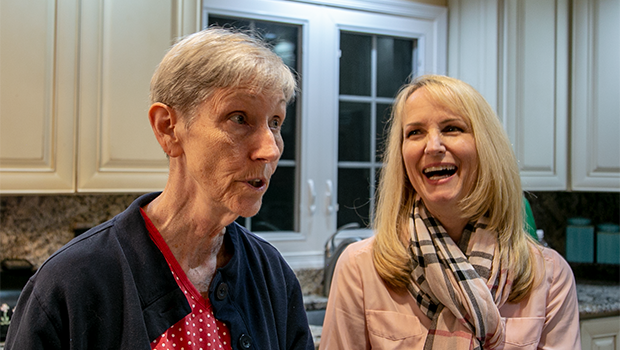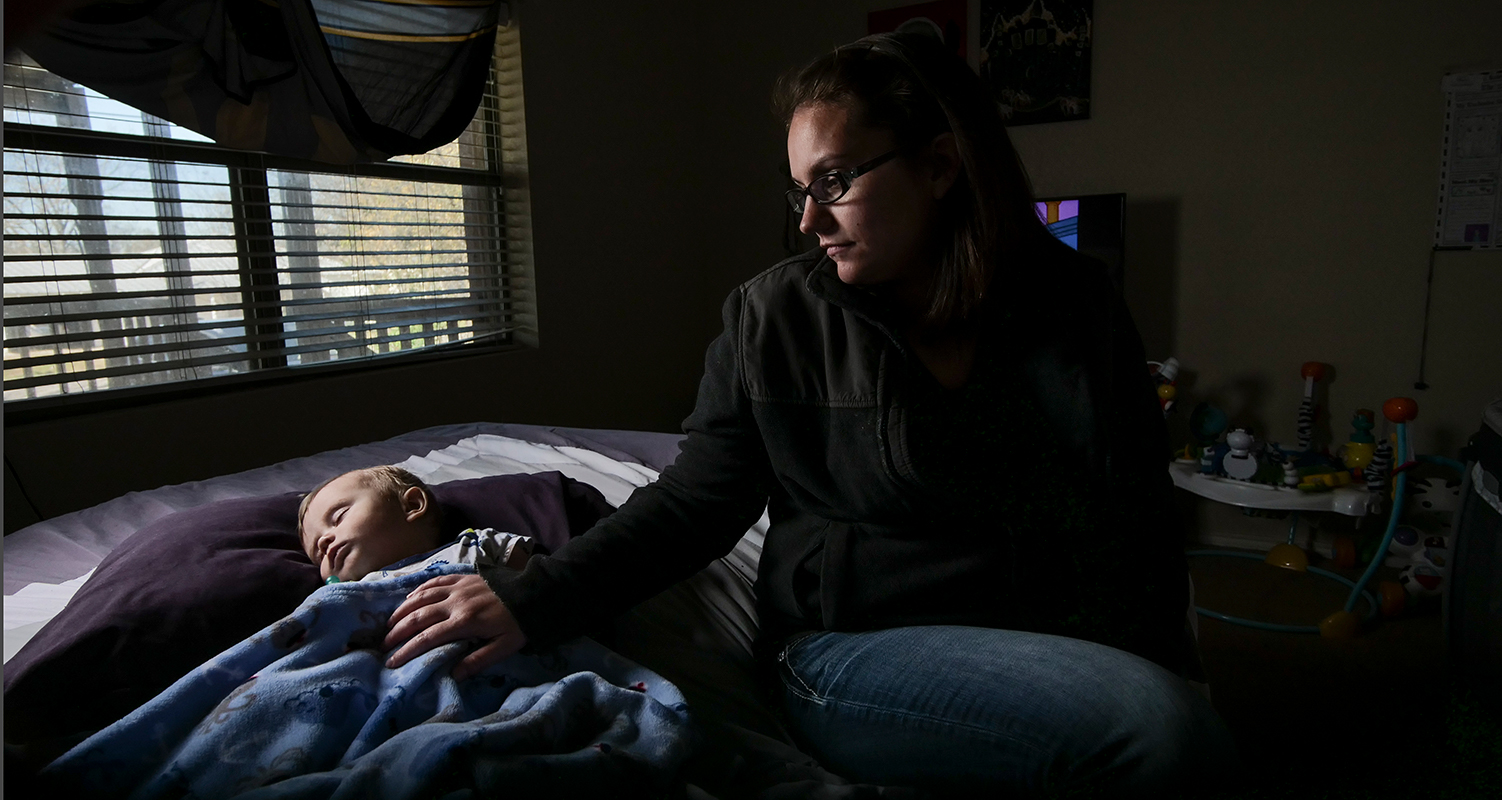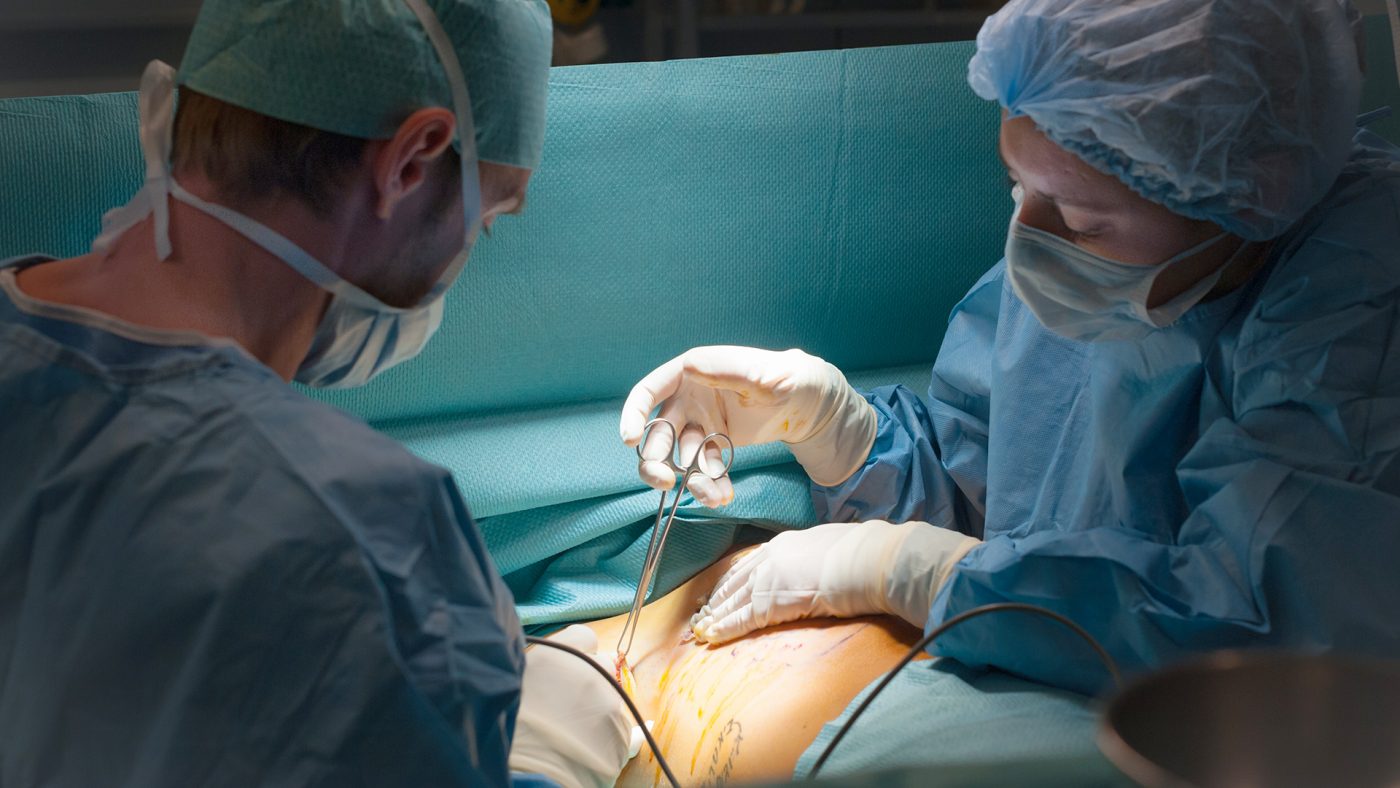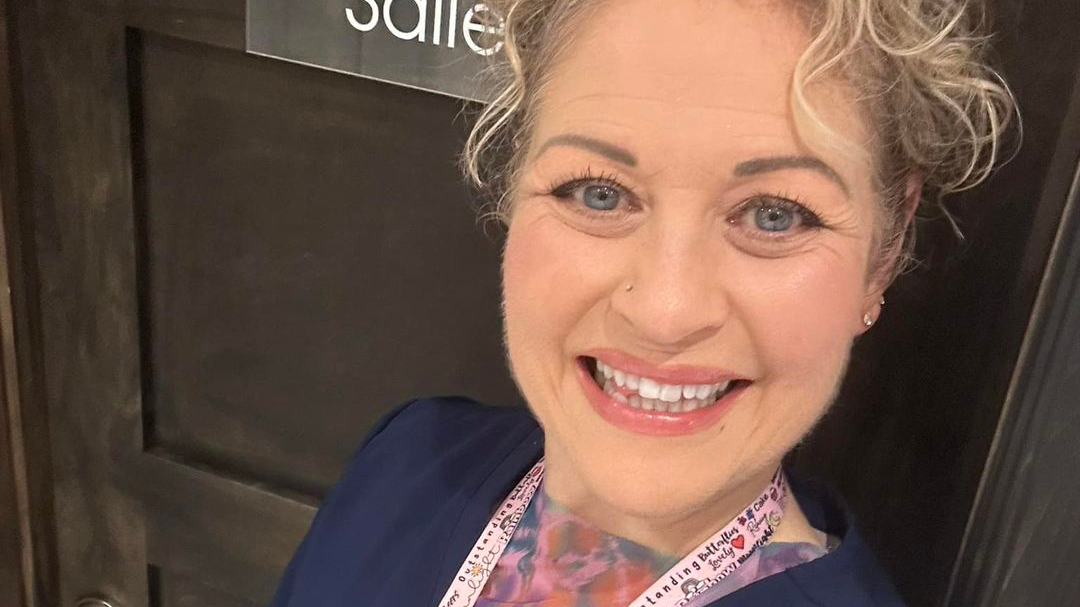When I went to visit Jill Vahldieck, the first patient I met in person for our breast implant investigation, I was expecting a somber evening.
Vahldieck, a U.S. citizen by birth who has lived in Germany for almost three decades, had seen her health devastated by a series of ailments that she attributed to her saline-filled implants. She said she had suffered insomnia, migraines, chronic pain and had lost more than 40 pounds in a year.
“I was disintegrating before everyone’s eyes,” Vahldieck said.
But when I arrived in Clinton, Virginia, where Vahldieck was recuperating after surgery to remove her implant, what I encountered instead was a powerful display of solidarity.
Vahldieck was hosted in Virginia by Karen Dillinger, who years before had also suffered a debilitating illness after getting breast implants. The two had connected through a Facebook group for women who faced health problems after getting implants. Although they had never met in person, Dillinger agreed to host Vahldieck for two weeks to help her recover from surgery.
The bond between the two women was visible. They shared health tips, avocado brownies, and referred to each other as “breasties” – which I would learn was a frequent term of endearment in the community of breast implant patients. They spent much of the evening smiling, laughing and enjoying their unexpected friendship.
The evening was an introduction to a community of thousands of women around the world who experience health problems, including severe illness, after getting breast implants.
More than 50,000 women have joined a Facebook group, Breast Implant Illness and Healing, whose membership has skyrocketed in the last year. The reason for the surge, says the group’s founder, Nicole Daruda, is that no one else would take their ailments seriously.
“Women were having all these problems, and, when they go to their doctors, they get told there’s nothing wrong with their implants,” Daruda said.
It hadn’t occurred to me before this project that being believed by my doctor when I said I had a problem wasn’t a universal experience
In speaking to these women, I was struck not only by the severity of their symptoms but also the parallels among their stories.
Over and over, they observed that a major traumatic part of their experiences was not knowing what was wrong with them and not being believed by their doctors, an attitude that many attributed to sexism.
Plastic surgeons in particular, they said, dismissed the idea that their breast implants could be making them sick.
Although breast implants are not always found to be the cause of patients’ symptoms, their stories opened my eyes to something I hadn’t personally experienced.
It hadn’t occurred to me before this project that being believed by my doctor when I said I had a problem wasn’t a universal experience — or what it would be like to be gravely sick and discounted by the people I needed in order to get well.
But then, I’m a man. Studies abound of doctors treating women’s symptoms less seriously than men’s.
In the final months of reporting, I reconnected with Daruda and other patient advocates. They were planning a September trip to Washington, D.C., where the International Consortium of Investigative Journalists’ offices are located, to meet with U.S. Food and Drug Administration officials and Rep. Rosa DeLauro, D-Conn. Many of the advocates were mothers who had struggled to balance their illness with family responsibilities, and they were methodical, deeply informed and strategic in their approach.
In the meeting with the patients, Rep. DeLauro compared their experience and those of patients implanted with the birth control device Essure and vaginal mesh used to treat organ prolapse. The parallels were striking: all three were women’s devices with health consequences that are sometimes hard to discuss in public. In each case, women’s complaints had often been dismissed by manufacturers and physicians as scientifically misguided and psychological in their origins.
And in all three cases, patients’ advocacy was turning the tide. Essure patient advocates, who call themselves “E-sisters,” helped bring about an FDA black box warning for Essure and its withdrawal from the U.S. market. Days before ICIJ published its Implant Files investigation, the FDA put out a statement pledging its commitment to patient safety, announcing a focus on women’s health and specifically mentioning breast implants and mesh.
It was the final and most important way in which the community of women with breast implant health issues had upended my expectations: from finding a determined rather than a disheartened patient who was recuperating with the support of a new-found friend, to thousands of isolated victims who became united in bringing their problems forcefully to regulators’ attention.
In everything we discovered in our nearly yearlong investigation of medical devices and the broken system that regulates them, the emergence of women-led patient groups as a powerful voice shaping the rules for device safety felt like the most hopeful sign of all.






